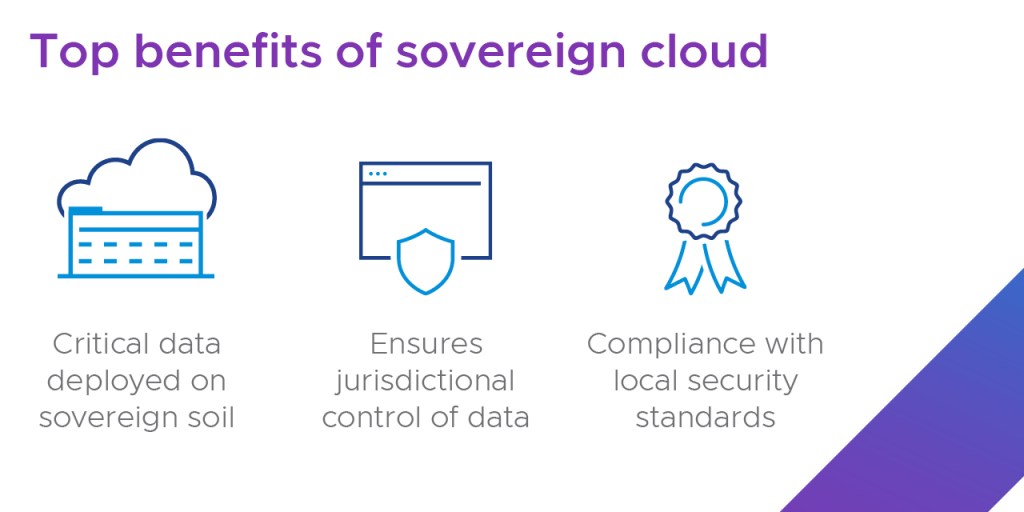Lately, the cloud ecosystem has undergone significant transformation, giving rise to novel frameworks that cater to specific regulatory and security requirements. An important evolution in this domain is the concept of the sovereign cloud. With organizations putting greater emphasis on protecting data and following regional laws, sovereign clouds have surfaced as a practical choice to conventional public cloud services. This transition indicates a heightened understanding of the intricate issues related to data sovereignty and safeguarding sensitive data.
These sovereign clouds are developed to guarantee that data remains stored and processed within a nation's borders, adhering to country-specific regulations and governance structures. hostino concerns about data privacy and security but also builds trust in businesses that they are compliant with regional laws. As businesses consider their alternatives, the distinctions between sovereign and conventional clouds are becoming increasingly relevant, influencing decisions that could shape the trajectory of their digital plans moving forward.
Definition of Sovereign Cloud
Homegrown cloud refers to a cloud computing environment that is specifically designed to comply with the legal frameworks of a particular country or region. This approach ensures that data sovereignty is upheld, meaning that data is stored and processed within the spatial boundaries of its originating jurisdiction. Homegrown clouds are adapted to meet the specific security, privacy, and compliance requirements mandated by local laws, which can vary greatly from one country to the next.
One of the key drivers for the rise of national cloud solutions is the increasing concern over data privacy and protection. Organizations, particularly those in oversighted industries, face strict requirements regarding the way their data is handled and stored. National clouds provide a solution by offering exclusive infrastructure and services that adhere to these rules, thus giving organizations confidence that their private information remains secure and compliant with local laws.
Moreover, national clouds promote state interests by enabling countries to support their electronic sovereignty. By investing in home data centers and cloud infrastructure, nations can reduce their reliance on foreign cloud providers, enhancing control over their data assets. This shift not only fosters business growth and innovation within a country, but also strengthens national security by minimizing the challenges associated with cross-border data transfers and foreign data management practices.
Benefits of Sovereign Cloud
A local cloud offers enhanced data sovereignty, confirming that data is stored and processed within the country of origin. Such a feature is crucial for entities that need to adhere with regional regulations and protect sensitive information from foreign jurisdiction. By maintaining control over data residency, companies can lessen risks associated with cross-border data transfers and conform with national security policies, which is increasingly essential in the modern global landscape.
A further, key advantage is the ability to tailor cloud services to meet local needs. Sovereign cloud providers often comprehend the distinct requirements of their area better than multinational counterparts. This localized approach allows for specialized support and solutions that are optimized for local compliance, performance, and industry standards, ensuring that clients benefit from services that are not just adequate but thrive in addressing their specific challenges.

In conclusion, the sovereign cloud fosters confidence and transparency between providers and users. By depending on local providers, organizations can forge closer relationships, enhancing collaboration and responsiveness. This localized trust can compel more businesses to adopt cloud technologies, knowing their data is handled with a commitment to local laws and ethical standards. As entities increasingly focus on data security and transparency, the sovereign cloud presents a compelling option for those seeking a trustworthy computing environment.
Challenges and Factors
The shift to a sovereign cloud model presents several challenges that organizations must address. One major concern is the upfront investment needed to set up data centers and the necessary infrastructure to sustain sovereign cloud services. Companies must weigh the benefits of geographical data control against the financial implications of building and maintaining these systems. Additionally, organizations may face difficulties in locating adequate technical expertise to oversee sovereign cloud environments, as this is a relatively emerging area compared to conventional public cloud setups.
Adherence to regulations is another crucial factor to take into account. Sovereign clouds are built to adhere to local laws and regulations, which can vary greatly from one jurisdiction to another. This complexity demands that organizations remain knowledgeable about the legal landscape and make sure their cloud services are compliant with data protection laws. Not complying to comply can result in severe penalties and damage to an organization's reputation, making thorough understanding and planning essential.
Additionally, the interoperability between sovereign clouds and existing public cloud framework presents significant challenges. Many businesses rely on hybrid models that combine various cloud services to enhance operations and costs. Combining sovereign cloud solutions while preserving functionality and data flow with public cloud services can be complex. Organizations must develop strategies to ensure seamless interoperability without compromising security or compliance, which could leading to more complicated cloud management protocols.
